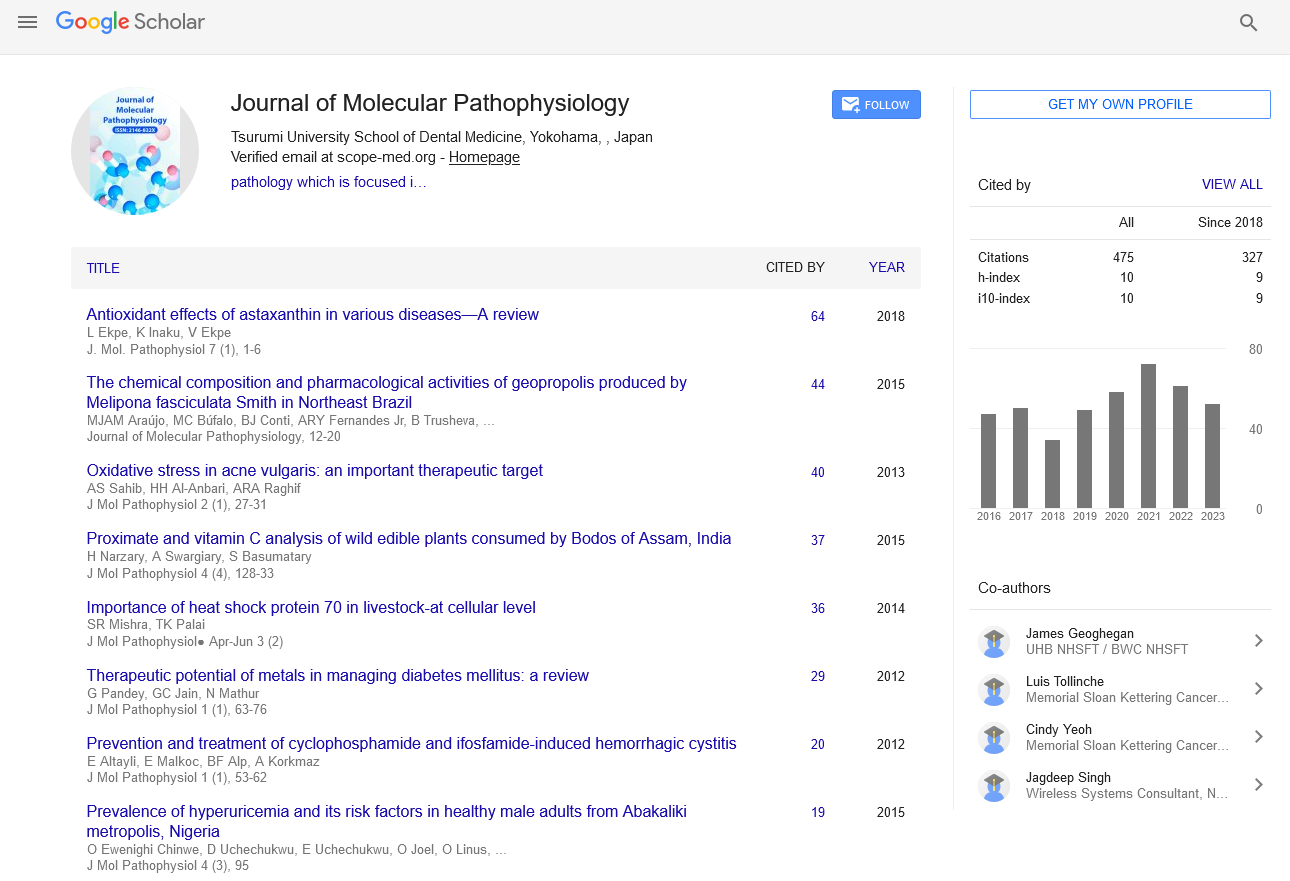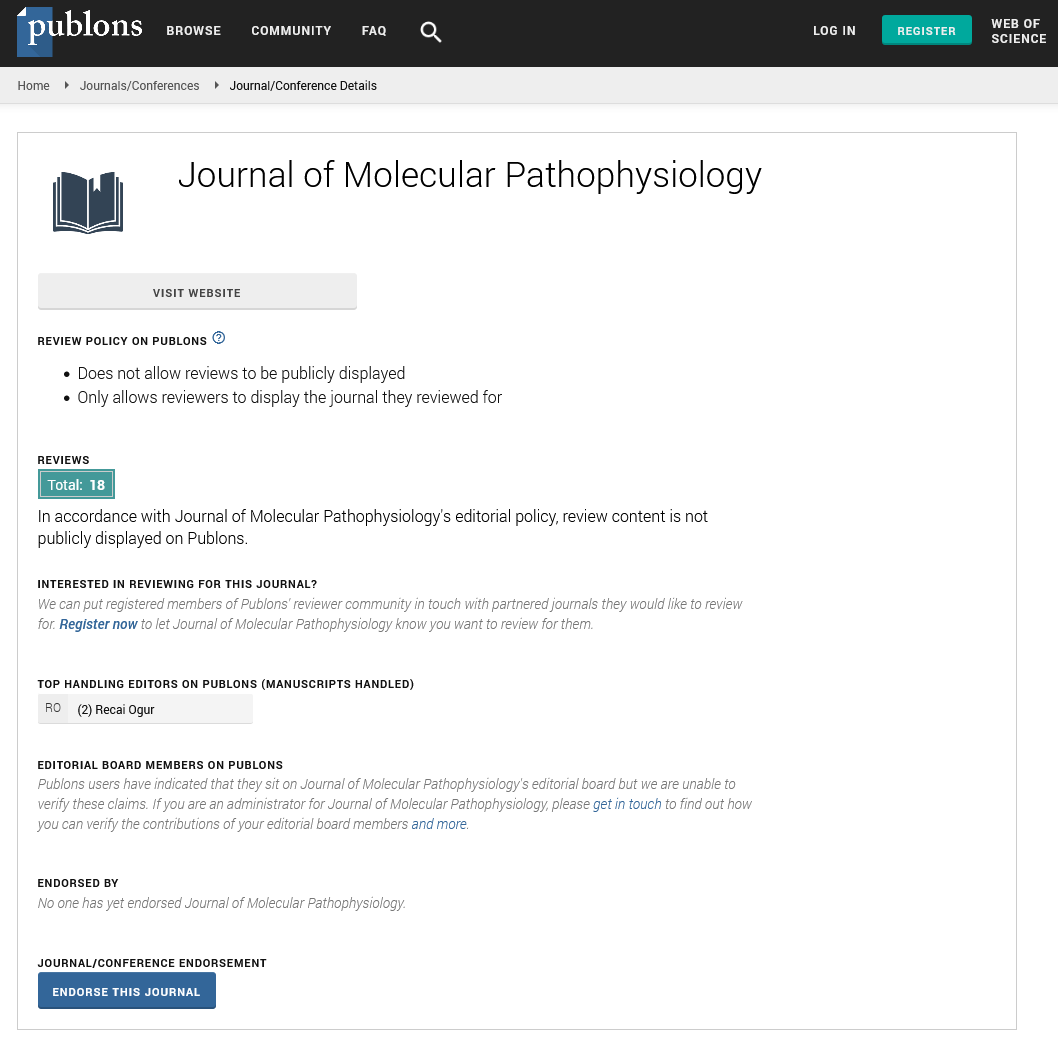Opinion - Journal of Molecular Pathophysiology (2023)
Genetic Variations, Impaired Organ Function and Clinical Complications in Cystic Fibrosis
Sophie Lijdsman*Sophie Lijdsman, Department of Cellular Pathology, Ningxia Medical University, Yinchuan, China, Email: Lijdsmans12345@yahoo.com
Received: 21-Nov-2023, Manuscript No. JMOLPAT-23-123019; Editor assigned: 24-Nov-2023, Pre QC No. JMOLPAT-23-123019 (PQ); Reviewed: 11-Dec-2023, QC No. JMOLPAT-23-123019; Revised: 18-Dec-2023, Manuscript No. JMOLPAT-23-123019 (R); Published: 25-Dec-2023
About the Study
Cystic fibrosis (CF) is a genetic disorder characterized by the production of thick and sticky mucus that affects various organs in the body. This condition is primarily caused by mutations in the Cystic Fibrosis Transmembrane Conductance Regulator (CFTR) gene, leading to dysfunctional chloride ion transport across cell membranes. The pathology of cystic fibrosis involves a cascade of events that impact the respiratory, digestive, and reproductive systems. Being an autosomal recessive genetic disease, cystic fibrosis requires the transmission of two faulty variants of the CFTR gene, one from each parent, for a person to become ill. The CFTR gene is located on the long arm of chromosome 7 and encodes a protein involved in regulating chloride and water transport across cell membranes. Mutations in this gene result in a dysfunctional CFTR protein, disrupting the balance of ion transport in various tissues.
The respiratory system's thick, sticky mucus production is a defining characteristic of cystic fibrosis (CF). The respiratory epithelial cells in a healthy person create thin, watery mucus that aids in collecting and getting rid of microorganisms and unwanted objects. CF sufferers, on the other hand, produce abnormally thick mucus due to impaired chloride and water transfer caused by faulty CFTR protein.
This thick mucus obstructs the airways, making it difficult for individuals with CF to clear their lungs effectively. The accumulation of mucus provides a perfect environment for bacterial growth, leading to chronic respiratory infections. The most common pathogens affecting CF patients include Pseudomonas aeruginosa and Staphylococcus aureus. Recurrent infections contribute to progressive lung damage, leading to bronchiectasis and respiratory failure over time. The pancreas is another organ significantly affected by CF. the CFTR protein plays a crucial role in regulating the secretion of digestive enzymes from the pancreas. In individuals with CF, the thick mucus obstructs the pancreatic ducts, preventing the release of enzymes such as amylase, lipase, and protease into the small intestine. The reproductive system is also affected in individuals with CF, impacting both male and female fertility. In females, CF does not usually affect fertility directly, but the overall health challenges associated with the condition can influence reproductive outcomes. Pregnancy in women with CF requires careful management, as the increased metabolic demands and changes in lung function can raise additional risks.
Cystic fibrosis is a multi-system disorder, and its impact is not limited to the respiratory, digestive, and reproductive systems. Moreover, CF can affect the sinuses, causing chronic sinusitis, nasal polyps, and respiratory symptoms. Additionally, the thickened mucus can obstruct the small airways in the liver, contributing to liver disease. CF-related diabetes is another complication, with insulin insufficiency and impaired glucose tolerance occurring in a significant proportion of individuals with CF.
The clinical manifestations of cystic fibrosis vary widely among individuals and depend on the specific mutations in the CFTR gene. While some patients may experience mild symptoms, others may face severe complications from an early age. While there is no cure for cystic fibrosis, advances in medical care have significantly improved the quality of life and life expectancy for individuals with CF. Airway clearance techniques, inhaled medications, and oral antibiotics are commonly used to manage respiratory symptoms and prevent infections. Lung transplantation may be considered in severe cases of respiratory failure. However, this option is limited by the availability of donor organs, and the procedure comes with its own set of challenges and risks.







